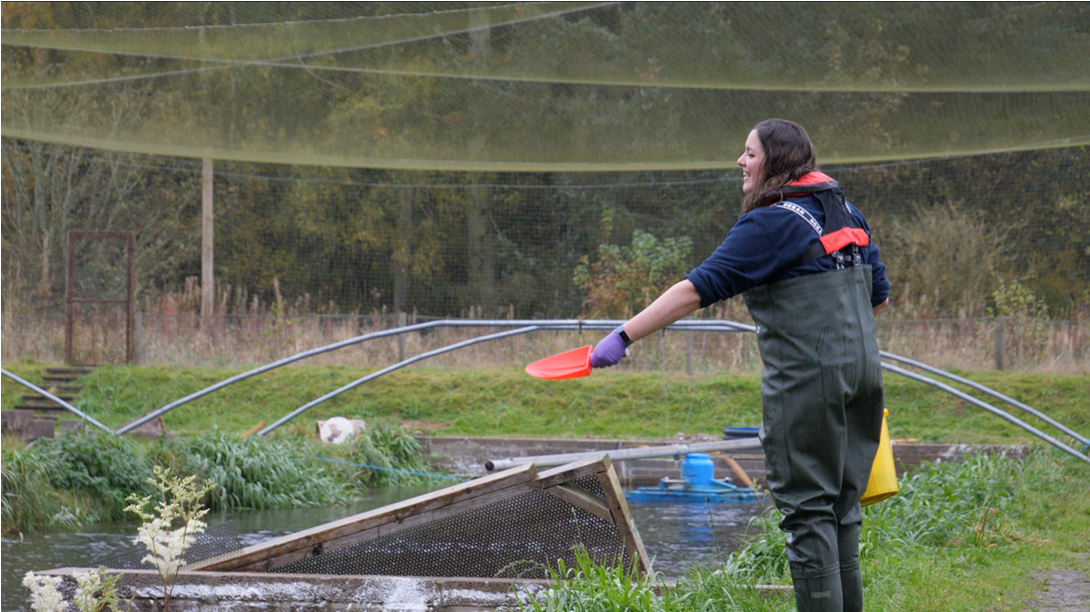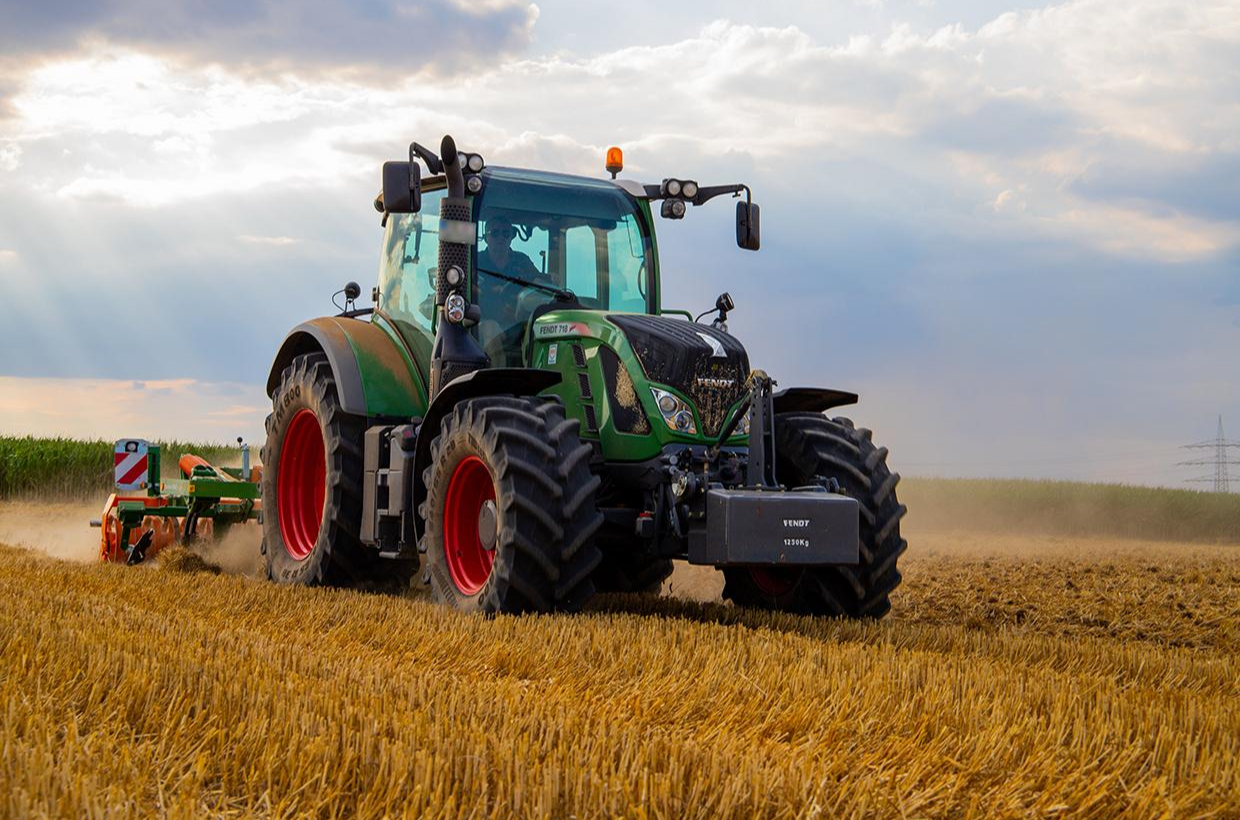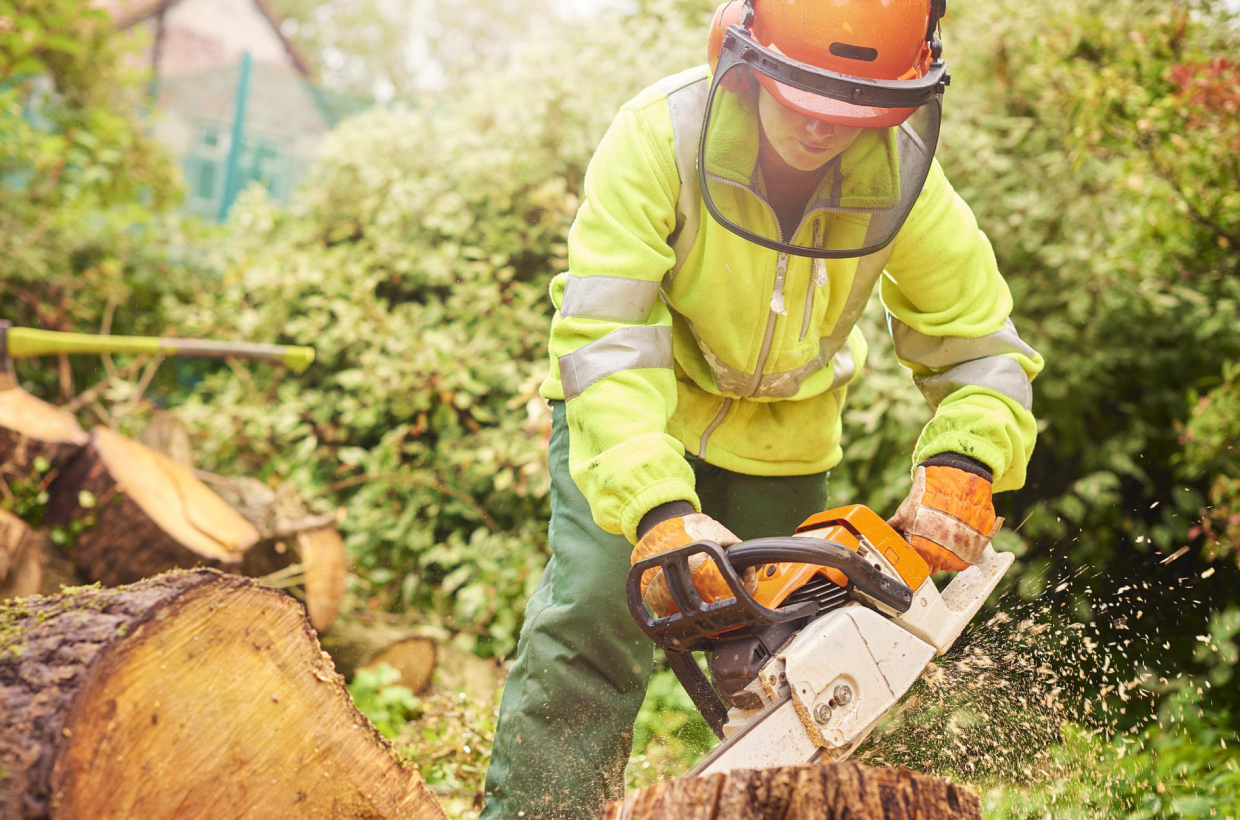
An Assistant Hatchery Manager supports day-to-day operations on site, deputising for the Hatchery Manager as required. Their role is to support the manager in stock management, team management and development, and the promotion of health and safety in the workplace.
They will have several years of hatchery experience, have a sound understanding of juvenile fish husbandry and be conscientious about recording and maintaining reliable records.
Also known as: Assistant Freshwater Manager
You’ll need:
an enthusiasm for fish, their environment and welfare
to help lead a team, managing employees to meet set targets
good communication, time management and planning skills
to be flexible to meet the demands of the job
to use computer competently
to understand and interpret data, and make decisions to get results
to ensure safe working practices
A driver’s licence is needed for this role – some companies will support employees to pass their driving test if they don’t have their licence already. You’ll need to take short courses to learn how to operate equipment or forklifts.
Around 40 hours per week to a site rota, with cover for emergency callouts and working flexible hours around the jobs that need done at different times of the year. There may be options for full-time and part-time working.
Breed fish, either by hatching eggs from adult fish or buying in young fish and rearing them
Feed fish by hand or by filling hoppers that feed automatically
Clean growing tanks and ponds, ensuring hygiene standards are high to prevent disease
Check the water quality and oxygen levels are right for the fish
Monitor the health of the fish, treating those that show signs of infection or disease
Plan breeding programmes and grow schedules
Ensuring that the farm maintains high environmental standards
Keeping detailed and accurate records of stocks and be able to calculate expected dates to move to marine sites
You need to be comfortable working over water and may need to spend time outdoors in all weathers – PPE will be provided.. Hatchery sites are not as remote as the seawater farms but will still require own transport to get to. The work itself is active and involves a lot of heavy lifting, standing, bending and carrying.
Training is an essential part of any job, giving you the skills and knowledge you need to do your job safely and correctly. It also helps to strengthen your current skill set and prepares you for the next stage in your career.
Apprenticeships help you build the experience and skills that employers want to see. No matter what stage you’re at, they’ll help set you up for a bright future. There are lots of ways to get involved.
There may be opportunities for Assistant Hatchery Managers to be promoted to Hatchery Managers in larger fish farms. You may have to move companies to progress in your career, or you may have the opportunity to work abroad with your company.
Some Assistant Managers with relevant skills and experience move into scientific work, such as research or inspect welfare standards on farms.
Assistant Hatchery Manager will usually work in one of the following industries. Click below to find out more about possible career paths.
Fish, shellfish and seaweed are all ways we can help to feed our growing population, making careers in the varied world of aquaculture more important than ever before.
Aquaculture means the ‘farming’ of all kinds of animals and plants that live in the water – fish, shellfish and seaweed. Jobs in aquaculture include farming, working to restore threatened and endangered populations, habitat restoration and looking after aquariums and fish cultures. It’s a growing industry playing an important part in providing sustainable sources of protein to feed our growing population.
Scotland is Europe’s largest producer of Atlantic salmon, directly employing 2,500 people in salmon production, plus many more in the processing and supply chain. The UK also produces fish like rainbow trout, brown trout and halibut, as well as shellfish like mussels, oysters and scallops. Seaweed is also grown and harvested on a small scale – but the industry is expected to grow as we discover new ways to use seaweed in medicine, food and animal feed, and even combatting climate change.
Aquaculture is an important source of employment in the UK’s most remote, rural communities and offers career opportunities all over the world. As well as looking after animals’ health and growth, you could also specialise in science and research to make the industry more sustainable, or design new tech to reduce water pollution and feed waste.
In the Republic of Ireland, fish and shellfish are farmed in 14 Irish coastal counties; salmon, mussels and oysters are the main farmed species in the country. The industry sustains 1,833 direct jobs in remote rural areas with 80% located in the west of Ireland
Aquaculture is a varied industry with nearly 1,700 production sites across the UK
In Scotland, Atlantic salmon production dominates, employing 2,500 people directly and paying an average salary of about £38,000
Most aquaculture businesses in England, Wales and Northern Ireland are small to medium-sized enterprises (SMEs), with over 80% of businesses employing less than 5 people
There are 319 aquaculture sites in the Republic of Ireland.
In 2021, the aquaculture industry in the Republic of Ireland was valued at €175m
These courses are perfect if you are starting out on your career but they are also great for people already in jobs who want to improve their skills.
To find out more about qualification levels in England please visit Regulated Qualifications Framework (RQF) for England and Northern Ireland or Framework for Higher Education Qualifications for England, Wales and Northern Ireland (FHEQ) .
To find out more about qualification levels in Northern Ireland please visit Regulated Qualifications Framework (RQF) for England and Northern Ireland or Framework for Higher Education Qualifications for England, Wales and Northern Ireland (FHEQ).
To find out more about qualification levels in the Republic of Ireland, please visit National Framework of Qualifications for Ireland (NFQIE)
To find out more about qualification levels in Scotland please visit Scottish Credit and Qualifications Framework (SCQF).
To find out more about qualification levels in Wales please visit Credit and Qualifications Framework for Wales (CQFW) or Framework for Higher Education Qualifications for England, Wales and Northern Ireland (FHEQ).
| Title | Level |
|---|
These courses are perfect if you are starting out on your career but they are also great for people already in jobs who want to improve their skills.
Whether you’re just starting out in the workplace, want to upskill or are considering changing direction, Apprenticeships are a fantastic way to build your career. Apprenticeships combine work with on-the-job training, so if you want to earn as you learn, there’s an apprenticeship out there for you – you can even start an apprenticeship if you already have a degree.
Work, earn and learn – no matter where you are in your career, an apprenticeship can set you up for a bright future.
Let’s get started!
Want to take on an apprentice? Employers start here.
An apprenticeship is a unique blend of work experience and study to help build the skills and knowledge you need for your career. Apprentices are employees – they have a contract, are paid and get the same benefits as everyone else. But the difference between an apprenticeship and a normal job is that apprentices are regularly released from work for training. Sometimes that’s a day a week, sometimes it’s for a longer block – it all depends on the job and the apprenticeship.
Apprentices work for all kinds of people at all kinds of stages in their lives. Most apprentices fall into one of three categories:
Previously restricted to school leavers and young people, apprenticeships are now a dynamic way of retraining people of all ages - there’s no upper age limit. The minimum age to become an apprentice is 16 and candidates can’t be in full-time education.
Apprenticeships offer a unique combination of paid work and study. They’re an exciting option for anyone who wants to gain experience, upskill or change career while working.
They offer a chance to work, learn and earn:


Interested in becoming an apprentice? Search for current opportunities and apply here.
Find your apprenticeship
You can also check vacancies on employer websites or get in touch with your local careers service.
What’s it like to work, earn and learn? Find out what apprentice life is really like.
Explore apprenticeship stories
Seafish
Find out more
Salmon Scotland
Find out more
Sustainable Aquaculture Innovation Centre (SAIC)
Find out more
Institute of Aquaculture – University of Stirling
Find out more
Association of Scottish Shellfish Growers
Find out more
Shellfish Association of Great Britain
Find out more
Scottish Seaweed Industry Association
Find out more
British Trout Association (BTA)
Find out more
Aquaculture Industry Wales
Find out more
Thinking about your finances is important when you're looking at courses and training - different types of funding support is available depending on what type of course you're interested in and where you are located. We recommend you contact the training provider for more information on course costs and financing, but here are some links to connect you to support available:
Skills Hub Scotland is an online skill sharing marketplace creating new opportunities to learn and share skills. Wherever you are located - if you have a skill to share, or a skill to learn, Skills Hub Scotland can help.
Initially founded as a response to the Scottish Government’s CivTech 5 programme in 2020 and aiming to offer a platform for those in rural or remote locations, Skills Hub Scotland has been developed into an important sectoral resource. If you have a skill to share with others or are a training provider, list your workshop or course (all skills from all sectors are welcome). If you are a learner, use Skills Hub Scotland to search for and book a course!
STEM is an approach to learning and development that incorporates the areas of science, technology, engineering and mathematics. Learning in STEM connects to Education for Sustainable Development/Learning for Sustainability and the Sustainable Development Goals – this helps learners to understand that STEM plays a vital role in finding solutions to real world issues or challenges such as protecting biodiversity and tackling climate change. There are multiple pathways into a land-based STEM career including apprenticeships, further and higher education. This means that a career in STEM is open to everyone!
STEM Learning is the largest provider of STEM education and careers support in the UK. Their STEM Ambassadors programme sees volunteers representing a vast range of STEM-related jobs work with young people to bring STEM subjects alive through real life experiences. They help to open the doors to a world of opportunities and possibilities which come from pursuing STEM subjects and careers. To become a STEM Ambassador, you can register via the STEM Learning website: https://www.stem.org.uk/stem-ambassadors/join-stem-ambassador-programme
Lantra have worked in collaboration with STEM Ambassadors in Scotland to create two specific UK-wide Ambassadors schemes - Forestry and Aquaculture. Through these schemes, we want to make sure that those working in forestry and aquaculture have the support materials they need to take part in STEM activities. To find out more and register for the schemes, please follow the links below:
Smart Futures helps young people in Ireland discover the STEM subjects and careers that might be right for them. Co-ordinated and managed by Science Foundation Ireland, their programme allows young people to connect with people that are working in STEM, the organisations they’re working in and what their interests and skills are.
Why not take a look at the Industries Explorer as an introduction to the different areas you could work in.
If we can support you with any specific information, please click the button below to get in touch.